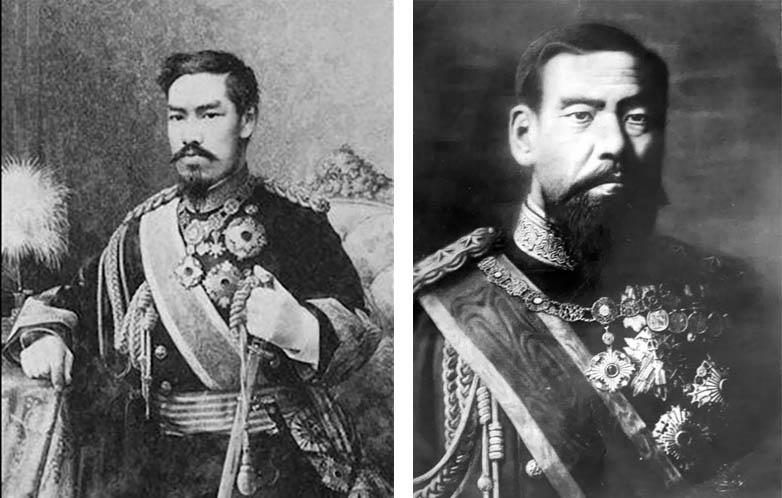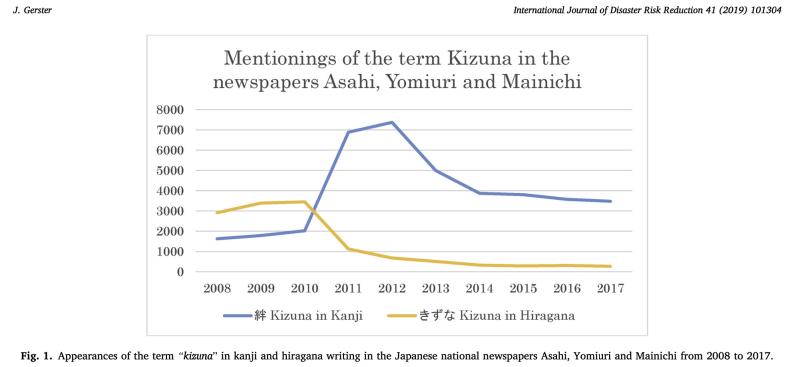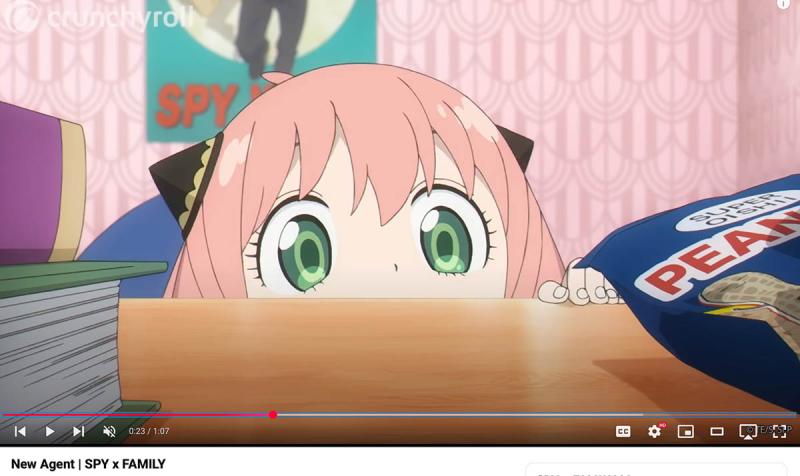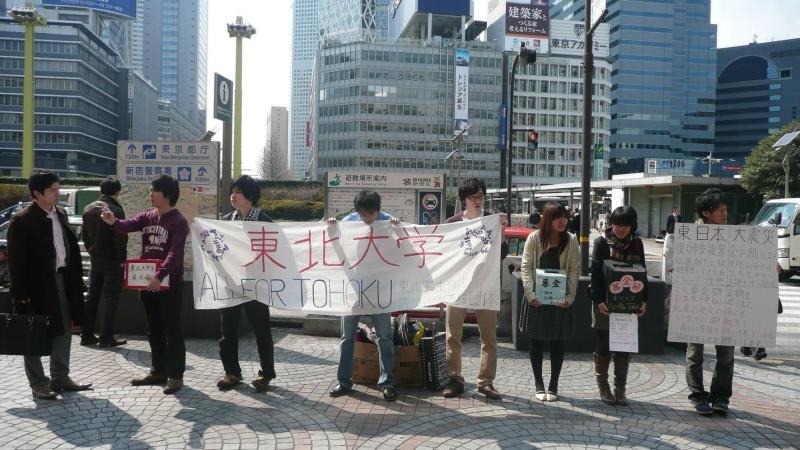
The Forger family at a Spy X Family exhibition at Wakuwaku Park, at Osaka, Japan in March 2024. Author’s personal photo.
Spy x Family and Japan’s Need for Kizuna
Once, a blonde white female cashier greeted me in Japanese at a McDonalds in Osaka. I did not know whether to respond in English (she could be Polish or Brazilian for all I know) so I responded in Japanese, thinking that to respond in English would imply that she could not understand Japanese. We both continued our transaction in imperfect Japanese, and it had me thinking, what is the meaning of being Japanese? What makes a family and a people of any nation? Is it blood ties? Or is it the bonds of love, care, and belonging, even if formed outside traditional structures? This is one of the deeper central questions of one of my favorite anime, Spy x Family (2022).
How does this franchise reflect the issue of family and also national bonds? If Japan is to be seen as a national family, then what makes a Japanese person? Blood and genetics? Or one’s bonds? This pressing question of loyalty and belonging could be applied to all nations, especially in this age of globalization.
For the uninitiated, Endo Tatsuya’s Spy x Family, published as a manga in 2019 and made into an anime series in 2022, is about a secret agent code named Twilight, a master of disguise from the fictitious nation of Westalia. Twilight goes on a mission to infiltrate the elite society of the enemy police state of Ostania. To do so, he takes on the name of Loid Forger, and posing as a doctor, creates a fictitious family as a cover.
Loid’s first meeting with Anya
He adopts Anya, a young girl from an orphanage, who has been bounced from family to family. Anya is also secretly a telepath able to read minds and sees through Loid’s deception. But probably having been abandoned because of her telepathic powers scaring away prospective families, and desperately wanting a family, she keeps quiet and becomes his daughter.
Loid convinces Yor Briar, an unassuming secretary, to marry him. Yor, code name “Thorn Princess, also has a secret life as a professional assassin”. She enters into a marriage of convenience because being a young single woman attracts too much attention and thus could blow her cover.
Kizuna in Spy X family, and trauma

Author’s personal photo
Spy X Family exhibition at Wakuwaku Park, in Osaka, Japan. March 2024.
As Seth Aitchison points out in an article in Crunchyroll.com, all three members of this pretend family have suffered from and are bonded by wartime trauma. Loid, when meeting Anya in an orphanage, relates how he was left orphaned as a child due to the destruction of the war. Yor has a similar background, having lost her parents at a young age and been forced to take care of herself and her younger brother Yuri. She becomes an assassin and kills in order to provide for her brother. Anya, the telepathic child, has been abandoned by multiple families, and will lie or cry to remain in a family with the Forgers. Even Bond, the family dog, who Anya names after her favorite character The Bondman from the fictional TV show Spy Wars, was rescued from the cruelty of a wartime laboratory (and thus has the power to see into the future).
Here, a young Yuri sees his older sister Yor returning from a day’s work of killing people.
Yor’s brother Yuri Briar, who works unbeknownst to Yor as an officer in the State Security Service to hunt down dissidents, has an unhealthy obsession with his older sister due to his mother’s death. He has a split personality – on the one hand he lovingly (or obsessively) wants to protect Yor, while on the other hand, is able to easily inflict sadistic pain on suspects while interrogating them.
Spy X Family would be a typical healing story of the power of love, except for one key complication: this family is put together as a cover for a spy operation. As a result, it will be dissolved once the operation is successful (or unsuccessful). And neither Loid nor Yor know each other’s true identities. Anya, being a telepath, knows, but fearing being sent back to the orphanage should she reveal her ESP powers, pretends to not know, and does her best to keep the “family” together.
This brings up whether a family built on lies, deception and a sense of mission can truly become a real family, and if so, what defines that realness?
The question of “who is Japanese?”

Public domain
The official portrait of Emperor Meiji in 1888 and later in 1907. In the prewar State Shinto ideology, he was the “father” of the Japanese
The state-sponsored history of family and national belonging has its roots in In Meiji Japan (1868 – 1911). The government promoted the idea of Japan as a single family, with the god-Emperor as the head patriarch, unifying all of Japan under his divine authority. This family-state ideology was the foundation of the Meiji government’s efforts to modernize Japan, as Japanese were socialized to obey their family head (usually the father), and thus obey the national father, who was the Emperor. This concept was spread through the education system, military training, and media and promoted national unity and loyalty by emphasizing shared ancestry.
As part of this ideology, the family unit (ie) rather than the individual, became the fundamental unit of society, with the household head being the family’s legal representative. The basis of the family came from the koseki, a record of family history, with all individuals being registered into this family system upon birth. Although people without biological ties could be adopted into the family, especially in merchant and craftsmen families who did not have a male heir, the koseki was largely based on biological ties. Already by the 1930s, this state-sponsored imperial family ideology was on unsteady foundations, with increasing urbanization and Western style individualism. After the war, with the Emperor disavowing his divine nature, and rapid changes like the growth of the nuclear family and American-influenced individualism, the Japanese grappled with the idea of “who is Japanese”?
How does Spy X Family tie into this historical discourse? The meaning of being Japanese today is quickly becoming detached from biological ties. Today’s Reiwa Japan (2019 - ) is rapidly diversifying. Many young Japanese choose not to marry and instead remain single, contributing to a decline in the birth rate and national population. In the big cities, adults, who are often cut off from their parents in the smaller cities, rural areas, and outer provinces, are choosing to socialize with their peers as a “chosen family” of non-biologically related peers, or even with animal companions.
There is also increasing intermarriage of Japanese with non-Japanese, and so many haafu (“half” or mixed race) children are coming of age. Indeed, in Spy X Family, although the protagonists seem to be white, with European style names, they have Japanese behaviors, such as bowing or showing emotional reserve. Or, packaging sometimes includes Japanese words, such as “oishii” (delicious):
One could say that this quasi-European family is culturally Japanese.
Growing immigration has further blurred the lines of who belongs to the Japanese national “family”. The “new normal” of mass immigration has led to 4.2% of Tokyo’s population and 1 in 10 residents in the central city being non-Japanese. Go to a convenience store in a major city and you will discover many of the clerks are from places like Nepal or Vietnam. With declining birth rates, by the 2010s there were fewer young Japanese to work low-paying jobs, and so immigrants have filled the gap in convenience stores and restaurants.
But as I pointed out in the introduction, being foreign-born is not the same as being non-Japanese. Many non-Japanese can speak Japanese well. Some were born in Japan, even if they don’t look Japanese. What bonds do they have with other Japanese?
The 2011 Earthquake and Tsunami and national discourse on Kizuna
The Japanese also went through these questions of trauma and family after the catastrophic Tōhoku earthquake and tsunami in March 2011. Viewers watched with horror on live TV as whole communities were wiped out. The devastation was immense, with 20,000 Japanese having lost their lives. The disaster revealed stories of people helping each other and sharing what they had left, and the media strongly emphasized kizuna, the Japanese concept of "human bonds". Rarely used in newspapers before the disaster, the kanji for Kizuna (絆) became a symbol of community resilience and a rallying point for Japanese, as seen in the chart below. In fact, ‘Kizuna’ was chosen as the kanji character of the year at the end of 2011.

.
From Julia Gerster, “Hierarchies of Affectedness: Kizuna, Perceptions of Loss, and Social Dynamics in Post-3.11 Japan,” International Journal of Disaster Risk Reduction 41 (December 2019): 101304, https://doi.org/10.1016/j.ijdrr.2019.101304.
Although use of the term “kizuna” dropped off after the earthquake, the central questions of ties among Japanese remained – what connects us in the aftermath of trauma? Japanese media took up these themes of social connections.
Spy X Family’s question: so what makes up a family?
You can see the tensions between the feelings the Forgers are developing for each other (when Loid tries to sweet talk Yor to put her at ease), versus the fact that they are a pretend family. Scene from the movie SPY x FAMILY CODE: White
Spy X Family thus indirectly tackles the question of “Who is Japanese?” or “What makes up the Japanese national family?” Beneath the comedy, one of the tensions while watching the Forger family’s adventures is the question: does one’s duty override one’s desire for a real family? Loid's mission to infiltrate the enemy camp and secure a peace treaty necessitates the creation of a fake family. As the series progresses, Loid finds himself becoming attached to Anya and Yor, and it becomes unclear if he is devoted to his mission or his family. Also, Yor develops feelings for Loid and Anya, and wonders if she is still on a mission or if she has finally found a family.
Loid’s “mission” becomes a metaphor for a question that many people in Japan are grappling with today -- there is a mission to make the economy great again, but how does one make sense of a Japan with new immigrants and Japanese singles with their chosen families?
Discussion Questions
- What everyday moment made the author think about what it means to be Japanese?
- How does Spy x Family show different ideas of family through Loid, Yor, and Anya?
- Can a “fake” family become real? Why or why not?
- What does kizuna (bonds) mean, and how does it appear in Spy x Family?
- Can you think of real or fictional examples where non-biological bonds count as family?
- How do chosen families (friends, pets, communities) affect ideas of national identity?





Add new comment